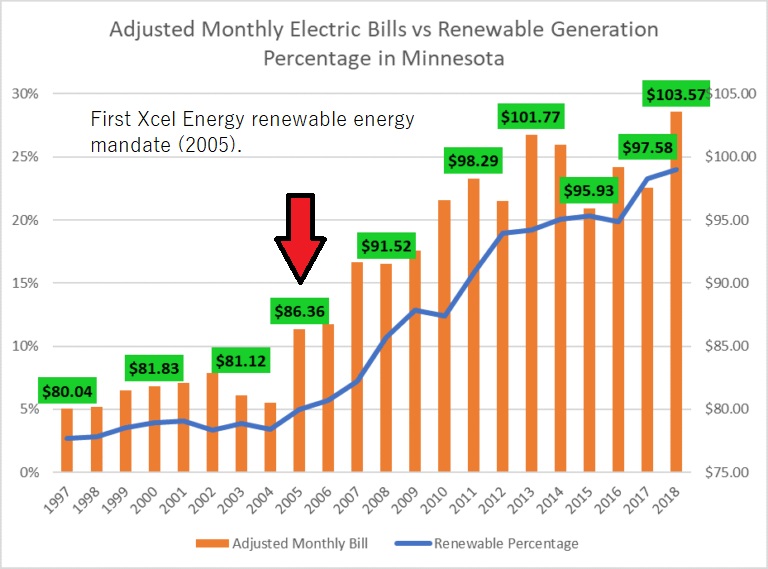Senate File 1999 is a $30 million green group giveaway using your money
Wind and solar special interest groups are going to party like the Artist Formerly Known as Prince if Senate File 1999 is passed.
If enacted, this bill would shell out $30 million from the Renewable Development Account (RDA), which is funded through an additional tax on Xcel Energy ratepayers, to establish a new state-created authority organized as a nonprofit corporation. This new authority would look for ways to spend that money, and additional monies obtained through outside donors, by subsidizing renewable energy and energy efficiency projects in Minnesota.
According to a Minnesota Senate hearing, the bill is the brainchild of Senator Dave Senjem (R-Rochester) and Michael Noble, who is the executive director of Fresh Energy. You can watch the video below.
This is problematic because as my colleague Mitch Rolling and I noted in our six-part series, Fresh Energy intentionally misleads Minnesotans on energy issues to promote wind and solar. In doing so, they harm all Minnesota families by forcing them to pay higher prices for the electricity they rely upon every single day.
Establishing a new special-interest group to subsidize, and most likely lobby for, more green new energy policies in Minnesota is a bad idea because it would cause electricity rates and bills to increase even more than they already have.

Creating a new nonprofit using ratepayer money would also open the door to corruption and self-dealing.
We have seen this before in Minnesota with the Iron Range Resources and Rehabilitation Board (IRRRB), which has been described as “a revolving door of political patronage for Iron Range DFLers.” This view was amplified when the IRRRB flouted state hiring guidelines and created a new permanent position for Joe Radinovich after he lost his bid for the 8th Congressional district in 2018.
This new “climate IRRRB” would likely be prone to the same type of self-dealing and corruption.
In fact, we already saw a similar hire occur in 2019, when a McKnight Foundation grant of $50,000 was used to create a hand-crafted job at the University of Minnesota’s Institute on Energy for DFL Representative Jamie Long, who is now the chair of the House Climate and Energy Finance and Policy committee.
This position was created at the University so Representative Long could “provide a ‘truth squad’” to “debunk right-wing misinformation spread by a local ‘think tank’ about the reliability and cost of renewable energy, fossil fuels, and nuclear,” according to emails obtained in a data practices request. This hometown think tank was Center of the American Experiment.
Ironically, this hire cost Ellen Anderson, who was then the Executive Director at the University’s Institute on Energy, her job.
Don’t worry! She is now employed as the Climate Director at the Minnesota Center for Environmental Advocacy, an environmental nonprofit that opposes copper-nickel mining in Minnesota, sued the Minnesota Pollution Control Agency for not regulating greenhouse gas emissions from cows when a farmer wanted to expand their operation, and lobbies for more renewable energy.
Instead of giving away $30 million of ratepayer money to fund left-wing think tank types and creating an organization with a high potential for cronyism, how about we do something even more radical and give the money back to ratepayers? This would be an especially good idea considering thousands of Minnesotans are struggling to pay their utility bills due to COVID-19.
This is exactly what a bill from Rep. Chris Swedzinski would do. HF 2278 would transfer money from the renewable development account to low-income home energy assistance payments.
SF 1999 is a giant giveaway to green groups using your money. Let’s turn the “Renewable Development Account,” into the “Ratepayer Dividend Account,” and return this money to the people who deserve it most.
Cover image Nick Youngson CC BY-SA 3.0 Alpha Stock Images